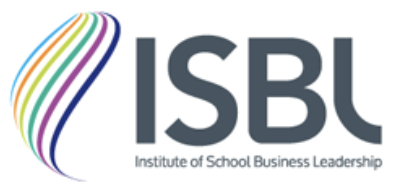
ISBL Professional Standards
Procurement
Procuring goods and services to achieve best value from all school or trust resources (economy, efficiency and effectiveness), using effective contract management to support education delivery within the context of regulatory frameworks and legislation.
Notes for use:
This is an interactive version of the Professional Standards - for a PDF copy please download this from the Professional Standards page. Tasks and responsibilities associated with each function are set out below by practitioner level. To identify the associated knowledge and skills click the downward arrow symbol next to the descriptor.
Function: Procurement strategy and policies
Foundation Practitioner
-
[3.1] Can collaborate with colleagues and managers to collect relevant procurement data and information within specific deadlines.
-
[3.1] Can collaborate with colleagues and managers to collect relevant procurement data and information within specific deadlines.
Associate Practitioner
-
[3.2] Understands the value of strategic planning and uses data, systems and a range of tools to monitor contract performance.
-
[3.2] Understands the value of strategic planning and uses data, systems and a range of tools to monitor contract performance.
Lead Practitioner
-
[3.3] Demonstrates a good working knowledge of procurement process development and systems to monitor and evaluate contract performance to identify opportunities/risks.
-
[3.3] Demonstrates a good working knowledge of procurement process development and systems to monitor and evaluate contract performance to identify opportunities/risks.
Strategic Practitioner
References
Department for Education (DfE) (2022), Good Estate Management for Schools. [Online] Available from: https://www.gov.uk/guidance/good-estate-management-for-schools
Department for Education (DfE) (2022), Academy Trust Handbook. [Online] Available from: https://www.gov.uk/guidance/academy-trust-handbook
National College of Teaching and Leadership (2014). School Business Management Competency Framework. Nottingham: NCTL.
Acknowledgements
Chartered Institute of Procurement and Supply (CIPS)
Department for Education (DfE) Innovation and Development Commercial Operations Team
Schools’ Buying Club
-
[3.4] Uses strong analytical skills in the interpretation of data to evaluate performance and influence strategic plans. Seeks external advice as required. Understands statutory requirements related to procurement.
-
[3.4] Uses strong analytical skills in the interpretation of data to evaluate performance and influence strategic plans. Seeks external advice as required. Understands statutory requirements related to procurement.
-
[3.5] Understands elements of procurement practice and the need to keep policies and procedures up to date.
-
[3.6] Understands and can articulate the need for procurement activities to comply with social, ethical and environmental considerations.
-
[3.7] Is experienced in managing procurement policies, strategy and activities that prioritise social, ethical and environmental considerations.
-
[3.8] Engages in legislation and policy and can apply insights to long-term sustainability and suitability as part of strategic planning, taking account of changing social, ethical and environmental needs.
-
[3.9] Is aware of legal obligations related to procurement activity and the need for purchasing processes to follow agreed procedures.
[3.13] Knows where to find framework information.
-
[3.10] Understands the legal obligations required for procurement exercises and the principles of fair competition, transparency and probity when spending public monies.
[3.14] Understands Department for Education (DfE)-approved frameworks with predetermined terms and conditions.
-
[3.11] Has experience of being able to meet legal requirements and obligations related to procurement exercises and embedding processes based on fair competition, transparency and probity when spending public monies.
[3.15] Understands when and how to use approved frameworks appropriately.
-
[3.12] Can critically assess and challenge procurement processes to optimise resource opportunities and ensure the principles of fair competition, transparency and probity when spending public monies are met. Can seek professional procurement and/or legal expertise as required.
[3.16] Understands the concept and legal status of frameworks.
Function: Needs analysis and specification development
Foundation Practitioner
-
[3.17] Can carry out market research to assess specification development needs. Understands the need for supply chain resilience.
-
[3.21] Can define and specify product/ service requirements.
Associate Practitioner
-
[3.18] Can apply market analysis when formulating product/service specifications with due consideration for supply chain resilience.
-
[3.22] Understands how to define and specify product/service requirements and can identify potential risks for consideration as part of the procurement process.
Lead Practitioner
-
[3.19] Can apply market and supply chain analysis considerations when formulating product/service specifications with due consideration for whole-life costs.
-
[3.23] Can create accurate specifications and effective measurable evaluation criteria that demonstrate impartiality and probity to inform procurement decisions and ensure best value.
Strategic Practitioner
-
[3.20] Is experienced in the development of robust product/service specifications, supply chain resilience and risk analysis, and contingency planning.
-
[3.24] Can create and critically assess specifications and evaluation criteria to ensure contract sustainability and suitability with the school or trust strategy.
Function: Procurement process
Foundation Practitioner
-
[3.25] Understands how different purchasing routes (including frameworks and collaborative arrangements) operate.
[3.29] Understands the benefits of collaboration in achieving best value.
-
[3.25] Understands how different purchasing routes (including frameworks and collaborative arrangements) operate.
[3.29] Understands the benefits of collaboration in achieving best value.
Associate Practitioner
-
[3.26] Can evaluate the costs and benefits where different purchasing routes are available in order to achieve best value.
[3.30] Understands the risks and benefits of procuring through frameworks or independently through a tendering process to achieve best value.
-
[3.26] Can evaluate the costs and benefits where different purchasing routes are available in order to achieve best value.
[3.30] Understands the risks and benefits of procuring through frameworks or independently through a tendering process to achieve best value.
Lead Practitioner
-
[3.27] Can implement processes for evaluating sourcing options, including collaborative procurement opportunities, i.e. for benchmarking, quality assurance and best value.
[3.31] Can assess the delivery of best value when comparing sourcing options.
-
[3.27] Can implement processes for evaluating sourcing options, including collaborative procurement opportunities, i.e. for benchmarking, quality assurance and best value.
[3.31] Can assess the delivery of best value when comparing sourcing options.
Strategic Practitioner
-
[3.28] Has experience of achieving best value across a range of procurement activities through assessing sourcing options, aggregation and collaborative buying opportunities.
[3.32] Can achieve the balance between best value and exposure to risk when procuring goods and services outside formal frameworks.
-
[3.28] Has experience of achieving best value across a range of procurement activities through assessing sourcing options, aggregation and collaborative buying opportunities.
[3.32] Can achieve the balance between best value and exposure to risk when procuring goods and services outside formal frameworks.
-
[3.33] Understands and can follow a tender process.
-
[3.34] Is experienced in supporting tender processes and procedures to ensure that fair processes are in place and best value can be achieved.
-
[3.35] Is experienced in managing a fully compliant tender procurement process to ensure fair, competitive and transparent processes are in place.
-
[3.36] Can lead the development of detailed tendering procedures and ensure adherence to statutory and legislative requirements. Seeks expert advice as required.
-
[3.37] Understands the purpose of applying tender submission evaluation criteria when assessing supplier offers on a like-for-like basis.
-
[3.38] Can apply tender submission evaluation criteria to ensure fair, competitive and transparent processes are in place.
-
[3.39] Can design tender submission evaluation criteria to ensure that like-for- like processes are in place based on fair, competitive and transparent practice.
-
[3.40] Can assess tender submission evaluation criteria to ensure that effective validation is in place to assure best value and probity in the use of public funds are achieved when awarding contracts.
-
[3.41] Understands the process of contract award.
-
[3.42] Understands the need for effective contract administration and KPI/SLA development as part of the contract award process.
-
[3.43] Has experience of contract completion processes, negotiating KPIs, SLAs and/or joint working agreements and has an appreciation of risks associated with contractual agreements.
-
[3.44] Is experienced in contract negotiations and developing service level and/or joint working agreements. Can seek professional procurement expertise to ensure appropriate suppliers are engaged and solutions obtained.
Function: Supplier and contract management
Foundation Practitioner
-
[3.45] Understands the importance of effective contract management.
[3.49] Understands the need to maintain a contract register and contract log and monitor key performance indicators (KPIs) on an ongoing basis and on contract completion. Can administer and record key changes in line with contract management activities.
-
[3.49] Understands the need to maintain a contract register and contract log and monitor key performance indicators (KPIs) on an ongoing basis and on contract completion. Can administer and record key changes in line with contract management activities.
Associate Practitioner
-
[3.46] Can prepare and manage systems to support contract management across the school or trust to assess the level of risk and contract management needed.
[3.50] Can implement contract management systems to monitor contract progress against KPIs and actively review performance ongoing and on contract completion.
-
[3.50] Can implement contract management systems to monitor contract progress against KPIs and actively review performance ongoing and on contract completion.
Lead Practitioner
-
[3.47] Is experienced in managing the contract life-cycle process to deliver best value and assess ongoing performance.
[3.51] Can prepare specifications, develop KPIs/SLAs and produce contract management reports to actively monitor contract performance on an ongoing basis and on contract completion. Understands the need to seek external advice as required.
-
[3.51] Can prepare specifications, develop KPIs/SLAs and produce contract management reports to actively monitor contract performance on an ongoing basis and on contract completion. Understands the need to seek external advice as required.
Strategic Practitioner
-
[3.48] Is experienced in contract life-cycle management and evaluating contract improvement and/or aggregation opportunities to achieve best value.
[3.52] Can lead on, critically assess and evaluate all aspects of the contract management process and understands how to develop procurement knowledge across the school or trust. Reports at a strategic level on the performance, risk and deliverables throughout the contract.
-
[3.52] Can lead on, critically assess and evaluate all aspects of the contract management process and understands how to develop procurement knowledge across the school or trust. Reports at a strategic level on the performance, risk and deliverables throughout the contract.
-
[3.49] Understands the need to maintain a contract register and contract log and monitor key performance indicators (KPIs) on an ongoing basis and on contract completion. Can administer and record key changes in line with contract management activities.
-
[3.50] Can implement contract management systems to monitor contract progress against KPIs and actively review performance ongoing and on contract completion.
-
[3.51] Can prepare specifications, develop KPIs/SLAs and produce contract management reports to actively monitor contract performance on an ongoing basis and on contract completion. Understands the need to seek external advice as required.
-
[3.52] Can lead on, critically assess and evaluate all aspects of the contract management process and understands how to develop procurement knowledge across the school or trust. Reports at a strategic level on the performance, risk and deliverables throughout the contract.
-
[3.49] Understands the need to maintain a contract register and contract log and monitor key performance indicators (KPIs) on an ongoing basis and on contract completion. Can administer and record key changes in line with contract management activities.
-
[3.50] Can implement contract management systems to monitor contract progress against KPIs and actively review performance ongoing and on contract completion.
-
[3.51] Can prepare specifications, develop KPIs/SLAs and produce contract management reports to actively monitor contract performance on an ongoing basis and on contract completion. Understands the need to seek external advice as required.
-
[3.52] Can lead on, critically assess and evaluate all aspects of the contract management process and understands how to develop procurement knowledge across the school or trust. Reports at a strategic level on the performance, risk and deliverables throughout the contract.
-
[3.53] Understands the need for further or re-competition as part of the procurement and contract management process.
-
[3.54] Can support the further or re-competition process and develop new tendering procedures where necessary.
-
[3.55] Is experienced in managing and developing further or re-competition processes.
-
[3.56] Can lead on the development of legal and equitable further or re-competition processes.
